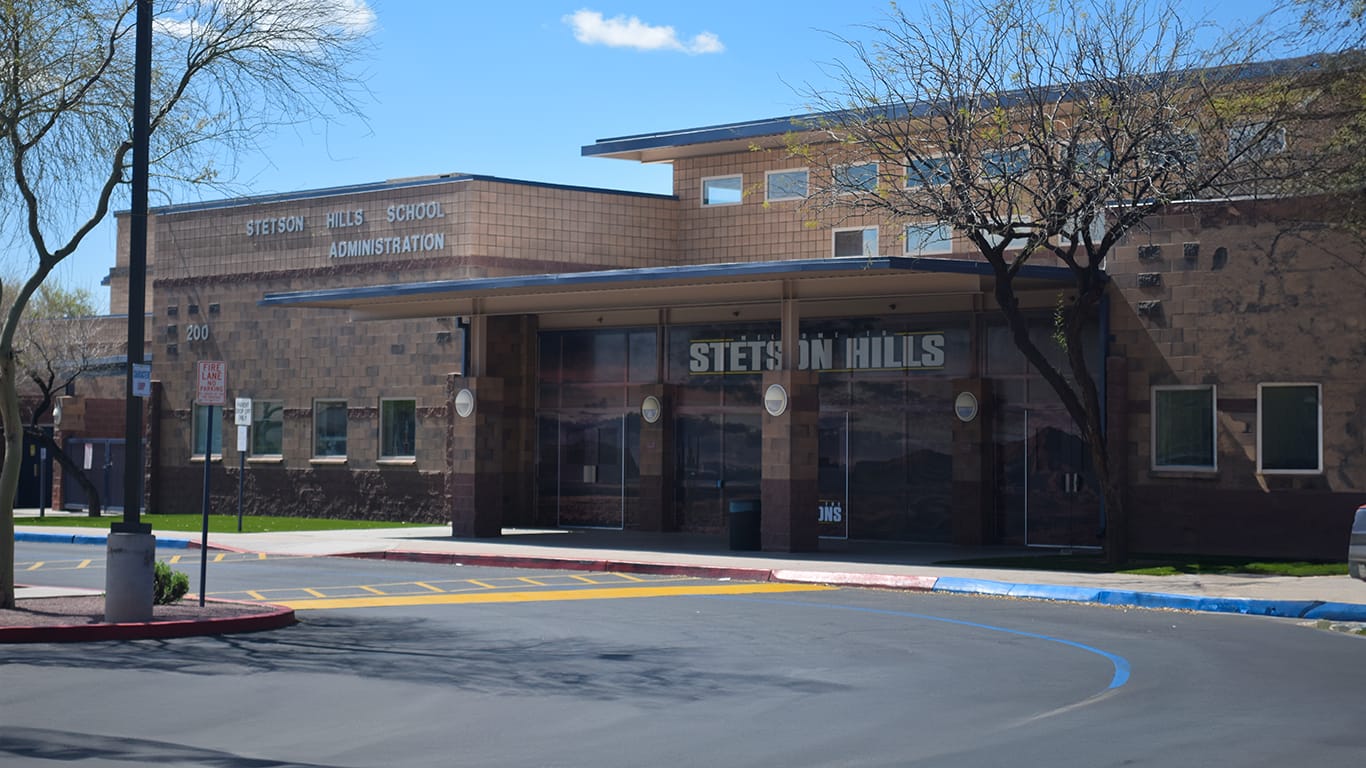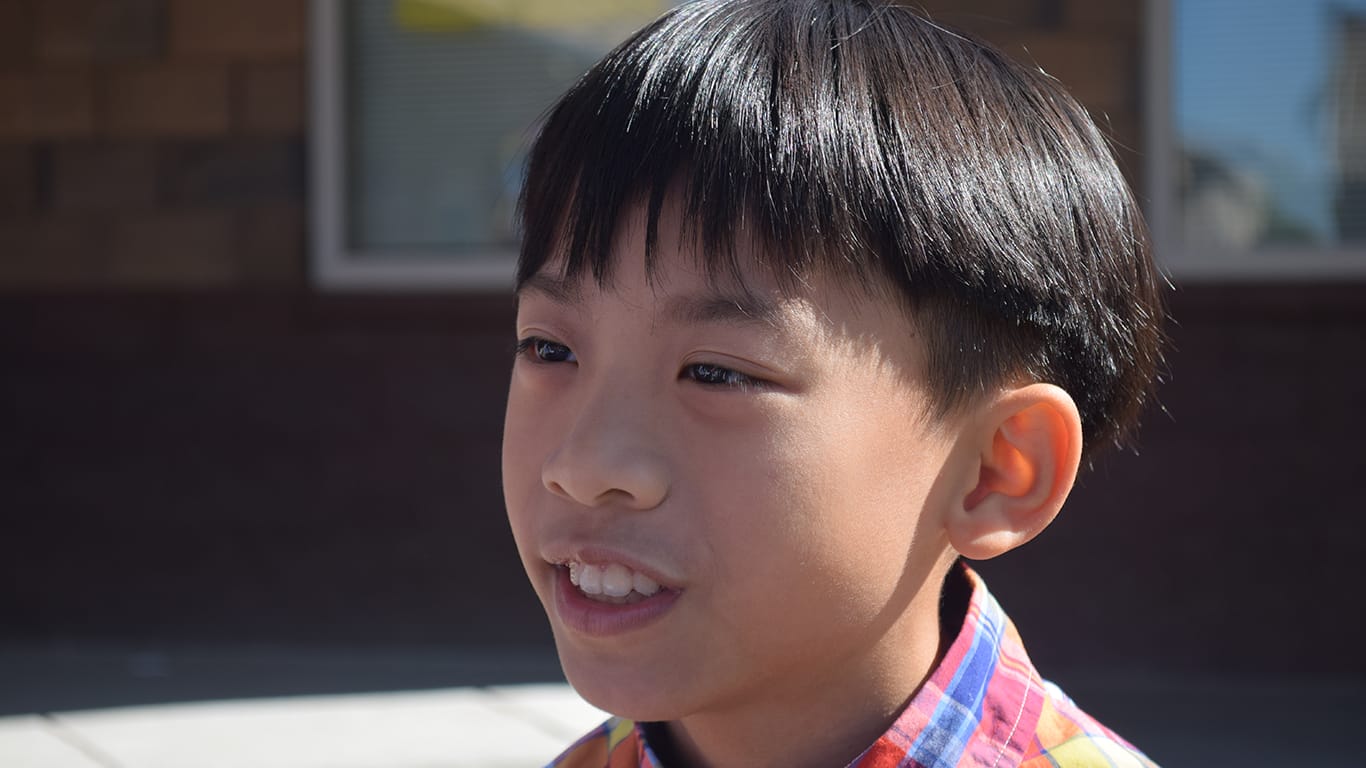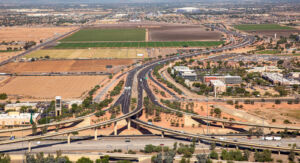In May of 2020, Taiwan Semiconductor Manufacturing Company (TSMC), the world’s largest manufacturer of semiconductor chips, announced its intention to construct an advanced semiconductor fab in Arizona, a $12 billion investment. TSMC later announced in Dec. 2022 that it would build a second fab, an additional $28 billion investment. In April 2024, it announced its intention to build a third fab, raising the company’s investment to more than $65 billion. This multibillion-dollar investment is expected to create thousands of jobs. Some of them will be filled by TSMC’s Taiwanese employees who are bringing their families to Phoenix. To help these new residents adapt to living in Arizona, both TSMC and Deer Valley Unified School District are providing services to make the transition smoother for parents and students alike.
MORE NEWS: TSMC plans third fab in Phoenix, increases investment to $65 billion
“In late 2022 and early 2023, we welcomed TSMC employees from Taiwan to Phoenix who are here on assignment — our assignee employees — to support cross-training during our ramp to full operations,” a TSMC spokesperson says.
When these Taiwanese families arrived in Arizona, there were many things that had to be considered: transportation, housing, healthcare. TSMC helped its assignee employees with these “critical needs,” according to a TSMC spokesperson. Phoenix Sister Cities also helped in accommodating these families to their new environment, sending volunteers to the TSMC Arizona campus to offer calligraphy and paper-making sessions during the Lunar New Year holiday.
Another area that families with children had to take into account was education.

Stetson Hills School, a K-8 school in North Phoenix, has been receiving Taiwanese students since October of last year. “It was a lot of, ‘Oh my gosh. Are we doing the best we can for them?’” Stetson Hills Principal Brittany Dyer-Hurdon says. (Photo by Kevinjonah Paguio, Az Business, a publication of AZ Big Media)
Acclimation for TSMC students
For Brittany Dyer-Hurdon, principal at Stetson Hills School, a K-8 school, figuring out how she and school faculty can help the nearly 100 incoming Taiwanese students was a constant process of adjustment.
“It was a lot of, ‘Oh my gosh. Are we doing the best we can for them?’” she says. “It was just a lot of on-the-fly work once they got here.”
One of the major challenges that Dyer-Hurdon and Stetson Hills faced was how to acclimate the students to their new environment. One solution was the existing student body’s genuine desire to learn about Taiwan and the incoming students. What are their schools like? What are their houses like? These are some of the questions Dyer-Hurdon has heard from students. Another is bringing Taiwanese customs to Arizona.
“Last year, we had a big Lunar New Year celebration and had lion dancers out,” she says. “Just really showing our community what the culture is like in Taiwan and what their values and traditions are so that we can get to know them as people and their culture as well.”
School faculty also try to encourage students to make some American friends. The school has an after-school board game club where both groups can engage and establish friendships. The school also encourages Taiwanese students to do extracurricular activities, whether it be a sport, a fine art or a STEM club.
Language learning
One educational aspect that has been at the forefront for these Taiwanese students is learning English. Stetson Hills’ Taiwanese students show varying levels of English proficiency.
“We see the whole range,” Dyer-Hurdon says. “Some of them can speak it, some of them can write it, some of them can read it, some of them need support in all areas.” She adds that students will spend 45-70 minutes a day in an English Language Learning classroom, with grade level taken into account.
Stetson Hills also has two full-time English language (EL) specialists — Selina Gonzales and Saher Afzal — and aides that will assist the students with their English skills.
“A lot of our lessons are model, model, model,” Gonzales says. “Sometimes we act out [words]. We show short clips, short videos, [and] incorporate a lot of vocabulary.”
Afzal also tries to incorporate regular conversation to build up the students’ English proficiency. “I like to ask them about how their weekend was,” she says, “what things they did and just have general conversations because that helps foster relationships, too.”
The two EL specialists also have noticed that different grade levels soak in the lessons at different paces.
“I noticed my fourth graders are picking up on the language very quickly,” Gonzales says. “My older ones — eighth grade, seventh grade — it’s taking them a little longer.”
Afzal agrees: “In the K-3 levels, you are learning to read, whereas after third grade you’re reading to learn and think.”
The biggest challenge they currently face is getting the Taiwanese students to be comfortable using English. When they are together in the classroom, they want to socialize and speak in Mandarin, Afzal says. Both EL specialists don’t want them to stop speaking Mandarin — they just want them to be more immersed with English, too.
“Having a strong first language only fosters and helps the student pick up another language as well,” Afzal says.
In the end, both just want one thing: success. “We want them to thrive here in America,” Gonzales says.
Dyer-Hurdon adds, “I’ve really enjoyed being able to see them ask the questions and interact and want to know more about something. It has been a great highlight for our school, and for our community, to have them here.”
From not knowing exactly what was going to happen to a streamlined process, all facets of the community — students, parents, faculty — have come together to establish a family that is eager to learn about and help each other. As more families from Taiwan are expected to arrive, Arizona is ready.
A first-hand account
Lin Cong-zhe, a fourth-grader at Stetson Hills, is one of the Taiwanese students that arrived between October and January of last year. His English name is Jasper, a name that his father chose for him. This, however, wasn’t always the case.
“When I was [in] kindergarten I choose a very funny name,” he says. That name was Kiwi.
Jasper’s fluency in English is at a proficient level, having learned the language since kindergarten in Taiwan. At Stetson Hills, he has integrated himself into the student body, showing an eagerness to learn. He has learned about natural disasters along with some history, bringing up European explorers such as Christopher Columbus, Hernán Cortés and Jacques Cartier.
His favorite class is lunch. “You can sit with anybody you want,” he says. Back in Taiwan, Jasper says there were assigned seats. He also loves P.E. “I like dodgeball because in Taiwan the dodgeball is only like one ball. So, it’s more boring. In America, there’s like 15 or more balls that you can throw and dodge.”
He is also eager to share about his experience living in Taiwan. “They don’t ask me, but I tell them,” he says. He also talked about some Lunar New Year traditions: eating dumplings, spring rolls and shrimp; wearing red; and receiving a red envelope. He did warn that if you find a red envelope on the street, don’t pick it up and take the money or you will have to marry a ghost.
There are some things that Jasper is still getting used to. On Valentine’s Day, American students usually give out candy and cards to fellow classmates which was a bit of a culture shock. “I don’t give any things to someone else because I don’t know we were doing that. So, I’m like, I thought that is like just voting or something.” Still, he found it fun.
While there were some things that he needed to get used to — the collaborative aspect of American education, the big size of the school campus — Jasper has become part of the Stetson Hills family. All the Taiwanese students have.




